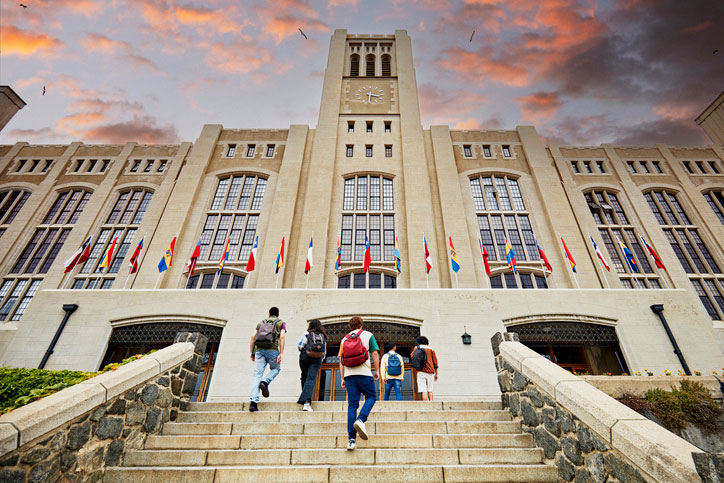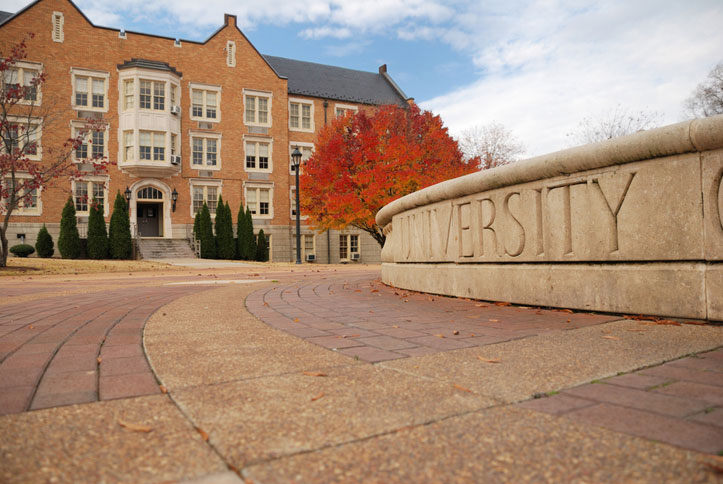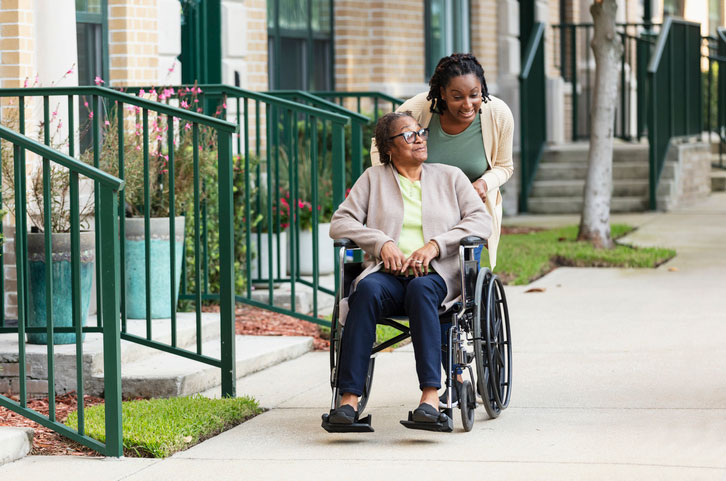Written by Scott Wilson

A Bachelor of Social Work (BSW) gives you a lot of options. It can serve as an entry-point to your career and may be the only degree you choose to earn. But it can also serve as a jumping-off point for the master’s degree required to become licensed for clinical practice in New York, cutting your grad degree requirements in half by making you eligible for advanced-standing status. If want to be career-ready with the option to go further later on, then a BSW is what you’re after.
New York City is the birthplace of organized social work education. Not surprisingly, today it’s home to more CSWE (Council on Social Work Education) accredited programs than almost anywhere else in the country. Many of those are undergraduate Bachelor of Social Work (BSW) degrees.
Even though a master’s degree is the gold standard in social work education for licensure, in many ways the real secret to becoming a superb social worker is in the curriculum found in the Bachelor of Social Work.
That’s because human services are almost uniquely well-served by the combination of coursework that comes with bachelor’s degrees. While a BSW gets a full load of classes in social welfare, ethics and diversity, assessment and documentation, it also comes with all the required courses in science and humanities associated with a broad liberal arts education.
That background is essential to understanding human behavior, the social compact, the mechanisms of democratic governance, the mysteries of human psychology, and the ebb and flow of the economy. These are the drops of human experience that flow to the sea of society; they form the ocean of social justice you must study to understand why the waves crash down on some people harder than others.
And if your heart is one of those that is drawn to helping others and changing society for the better, this is the degree where you will start making your mark.
A Bachelor of Social Work Can Streamline Your Path to LMSW and LCSW Licensure in New York

A Bachelor of Social Work (BSW) is a four-year undergraduate program that puts together the best elements of a traditional liberal arts education and the broad set of health and social welfare skills needed to prepare for a career in social services.
At some New York colleges, you may find these listed as a Bachelor of Science in Social Work (BSSW) or BASW (Bachelor of Arts in Social Work), but the coursework and objectives will be very much the same either way.
BSW degrees aren’t absolutely required to become a licensed social worker in New York, but they offer the straightest shot at meeting the requirements.
While a two-year MSW, or Master of Social Work, degree is the licensing requirement for both LMSW (Licensed Master Social Worker) and LCSW (Licensed Clinical Social Worker) from the New York State Education Department (NYSED) Office of the Professions, many universities offer advanced standing MSW options.
Advanced standing admissions allow graduates who have earned a BSW to skip the first half of the standard MSW course of study and wrap the whole thing up in a year, or even less. That’s a big part of why it’s well worth getting started with a BSW.
On top of that, a BSW provides a level of qualification for different kinds of social work jobs in the state that don’t require licensure. With a solid overview of the human services system and the kind of communication, planning, and management skills that come out of a bachelor’s degree, it’s entirely possible to find roles in administration, case management, planning, and other non-clinical social services jobs.
How a Transfer Degree from a New York Community College Can Make Your BSW a Lot More Affordable
 Even though the BSW is just a jumping off point to the MSW you need to become a full LMSW or LCSW, not everyone can make that first leap in one shot. Lots of people going into social work do it because they have been on the receiving end of critical social services. That usually means a background that doesn’t include a summer home in the Hamptons and overflowing bank accounts.
Even though the BSW is just a jumping off point to the MSW you need to become a full LMSW or LCSW, not everyone can make that first leap in one shot. Lots of people going into social work do it because they have been on the receiving end of critical social services. That usually means a background that doesn’t include a summer home in the Hamptons and overflowing bank accounts.
So it’s not unusual for people coming to BSW programs to first go into even less expensive and shorter associate degree programs in social work first.
Just as a BSW can get you into an accelerated MSW degree, shaving your graduate studies fully in half, an associate in social work may lop off two years of your full BSW program.
These are called transfer degrees, and there are a number of New York colleges that will count them toward your BSW.
This requires some planning. Not every associate degree will be accepted by every BSW program. Most universities will evaluate your coursework on a case-by-case basis to award credits if needed. But the safe path is to find schools that have an articulation or transfer agreement with the university where you plan to earn your BSW.
These agreements basically pre-approve the coursework so you know it will count. They are most common between schools in the same region. The SUNY (State University of New York) system, however, has worked out a specific transfer path guide for social work students at any of its campuses.
CSWE Vets New York BSW Degrees So You Don’t Have To

The accreditation status of your BSW degree is important, especially if you are planning to move up to an accelerated MSW program. New York State only accepts master’s programs holding specialty accreditation through the Council on Social Work Accreditation (CSWE). In turn, those master’s programs will generally only accept accredited BSW programs to fulfill their requirements for accelerated status.
Specialty accreditation offers you an assurance that you are going to be getting an education that is in line with the highest professional standards in the field of social work. CSWE is recognized as the sole specialty accreditor for social work programs in the country by the Council for Higher Education Accreditation.
That means they have the obligation and the ability to turn a magnifying glass on the classes, professors, field placements, and other critical components of a BSW education. Ongoing evaluations mean that you can rest easy knowing you are getting what you need to launch a fulfilling career… and will have what you need when it comes time to get licensed.
Bachelor’s of Social Work Online Programs Are a Popular Choice for New York Students
More and more college degrees at every level and in every field are being offered in online formats.
That trend is coming to social work bachelor’s studies as well.
Of course, it’s true that with the real-world field placements these programs require, none of them are 100 percent remote. But all actual classroom work can be completed online, and local placements are the norm so you can stick close to home.
That comes with many advantages. The most immediate one is that you can save quite a bit of cash by not having to relocate to attend college for four years. According to the National Center for Education Statistics, the average annual cost of room and board at four-year schools in 2022 was $12,986 – that’s before you even get to the cost of tuition. Staying close to home can mean you pay only a fraction of that.
That also opens up schools for consideration that you might never have thought of attending otherwise. Greater selection means a better shot at finding a match for your interests and goals than if you were forced to look at only local colleges.
Finally, online undergrad degrees are usually offered with asynchronous coursework. That means you can stream video lectures, participate in group chat, or work on class projects any time, day or night. That flexibility allows you to hold down a job, attend to family matters, or otherwise work school into a busy schedule.
BSW Curriculum Preps You for Entry-Level Jobs and the MSW Degree You Need to Become Licensed in New York

The specific social work curriculum in a BSW is fairly general, and quite consistent from college to college. No matter where you go, you can expect classes to include:
- Human Behavior and the Social Environment
- Contemporary Social Justice
- The Political Economy of Social Welfare
- Generalist Social Work Practice
- Research in Social Work
- Diversity and Ethics
These are surprisingly advanced classes for bachelor’s degrees, but it makes sense when you realize that the main goal for most BSW students is to move up to an MSW. As a degree that can stand in for the first year of a graduate program, the BSW has to punch above its weight.
Of course, a four-year degree comes with plenty of opportunities to branch out through elective courses, as well. Unlike graduate MSW programs, which commonly offer specializations to help you focus your studies, BSW degrees rarely offer concentrations. But they do come with a breathtaking range of elective courses.
You can fill out your credits with traditional options in social work studies, such as:
- Gerontological Social Work
- Substance Use and Families
- Perspectives in Early Childhood Disabilities
- Military Culture
- Evaluation Strategies in Human Services
But you also have the full range of undergraduate electives available in the typical university setting. So if you’re interested in social work practice and criminal justice, for example, you can take classes like Community-based Approaches to Justice or Women and Crime directly from experienced CJ profs. Your understanding of policy and political processes can be fleshed out in poli-sci studies straight from the Political Science department.
It’s an opportunity to experiment as well as to specialize. The broader view of the world of social work that comes from this experience will only strengthen your abilities no matter what your ultimate career path becomes.
Your BSW Degree Will Put You Out in the Field To Get a Taste of Social Work Practice in New York

That typically includes offering a surprisingly in-depth shot at field experience in active social work settings.
Practicum classes are placements in social services settings that are tightly integrated with your curriculum and overseen by both on-site supervisors and your instructors. These are usually the first experience that students have with real work in a social services setting. They tend to be relatively short and may have very specific learning goals to bring back to seminar-style classes where you discuss and compare experiences.
Many schools offer rotations through practicum placements to give you an idea of what various kinds of social work practice look like in the real world.
Internship placements tend to be longer and less structured. More of your supervision falls to staff at the social work agency you are placed at. Some internships are even paid. These are more typically used to hone your actual social work skills with real patients. They are an opportunity to deepen your expertise in a specific type of social work.
BSW Jobs in New York – What You Can Do with a Bachelor of Social Work

The brass ring for most social workers is on the other side of an MSW with the clinical practice skills it unlocks. It’s probably true that the most common thing that BSW graduates do is go on to advanced-standing MSW programs, where an additional year of study will give them the qualifications for an LMSW license.
But social services in New York is a big field with a lot of work to do. Not all of that work requires a master’s level education. Plenty of important social work happens outside of the world of clinical counseling and advanced practice.
BSW graduates will find their skills in great demand in all the many kinds of behind-the-scenes jobs that keep the social services system in New York running smoothly.
You will come out of your bachelor’s of social work program with a great appreciation for the structure and mechanics of the New York and federal human services system. You’ll also get to see how much it takes to keep that system running. There are a lot of jobs in a $19 billion industry (the size of the social assistance GDP in New York for 2022 according to the Federal Reserve) that are entirely involved in keeping the infrastructure and resources running so clinical social workers can do their jobs.
Bachelor of Social Work Jobs in New York Offer Tremendous Variety
BSW qualifications are entirely adequate for both entry-level and advanced jobs in many macro and mezzo human services jobs. That can run from positions like health care facilities evaluator to suicide prevention call center coordinator to case manager to social work assistants to program managers.
These jobs don’t come with direct clinical counseling responsibilities, but that doesn’t mean they don’t have a real and important impact on the lives of New Yorkers. The hugs and thanks you get for managing a neighborhood after school basketball program aren’t any less real than what a clinical social worker gets for referring a kid into that program.
BSW grads are allowed to practice types of social work that typically require licensure in some limited settings. It has to be done under the supervision of a fully-licensed LCSW or LMSW. The work cannot be clinical in nature, however.
Still, a quick look at New York area job listings that list a BSW as required or desired turns up all kinds of interesting positions that many people don’t even realize exist.
- Sociotherapist - Working for foster care services, these roles develop treatment and behavioral plans and handle documentation and referrals for children in the foster care system. Occasional checkups on living environments and assessments of kid’s progress in school and behavior offer a personal touch.
- Recreation Coordinator, Women’s Shelter - Keeping women and families safe is about more than just providing shelter. Rec coordinators run arts, sports, and other therapeutic programs to help keep minds active and promote community within transitional housing spaces.
- Credentialed Alcoholism and Substance Abuse Counselor - CASAC’s are New York’s certified substance use disorder (SUD) professionals, and a BSW plus a short certificate program can qualify you for the job. These roles evaluate substance use disorder patients, conduct intake, develop treatment plans, and offer direct counseling services… without requiring the LCSW license.
- Housing Case Manager - These jobs help unhoused individuals and families find resources and services to transition to permanent or transitional housing to get them off the streets and into stable environments. They meet with clients, oversee assessments and treatment plans, and coordinate enrollment in various housing programs.
Any of these jobs can allow you to have just as great an impact in lives and society as any fully licensed social worker.
Whether your BSW is just a step toward further education at the master’s level and a position in licensed clinical social work, or whether you make a career out of the kind of macro and mezzo practices that keep the big machine running, it’s a degree that offers priceless insight into helping people live more fulfilling and happier lives.
